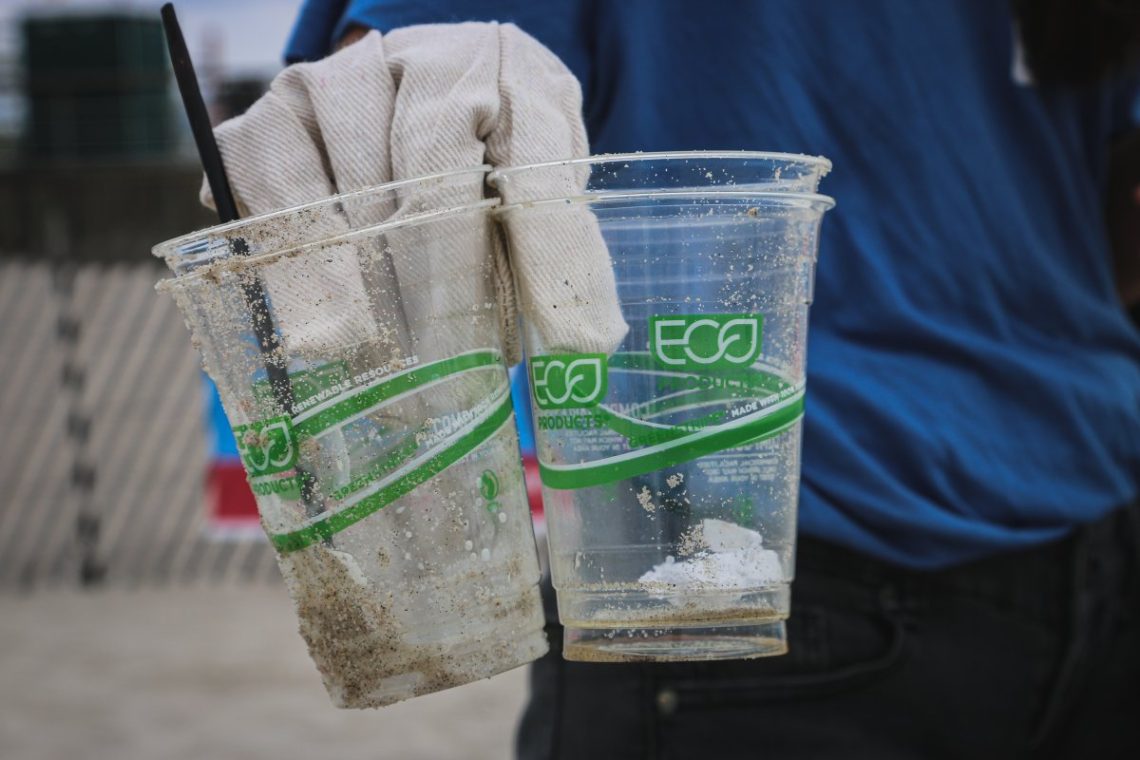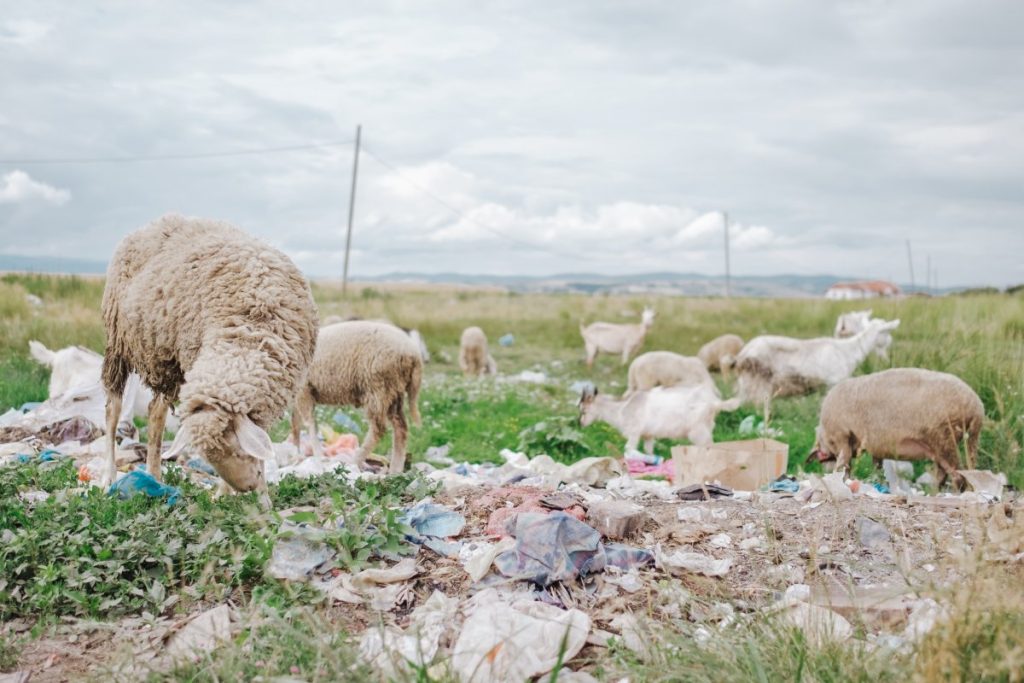
Understanding Greenwashing in the Travel Industry
Is there more than meets the ‘green’ eye? Both in life and travel, walking the eco-friendly path is highly encouraged, but it’s essential to know whether you’re truly helping the Earth or just falling for a clever marketing trap known as ‘greenwashing’.
Ever heard of it? No? Fear not! Let’s dive deeper into the meaning of greenwashing in the travel industry, its common examples, and ways to identify and circumvent supporting such practices.
Trust this guide to help you become a more informed, eco-conscious traveler, and remember, every journey towards sustainability starts with a single, informed step.
What is Greenwashing in the Travel Industry?

Greenwashing is essentially a marketing tactic used by businesses to present their products or services as environmentally friendly, when in fact they are not.
Greenwashing in the travel industry, specifically, is when hospitality and tourism companies claim to operate with sustainability at their core, but upon closer inspection, these assertions turn out to be more about public relations than meaningful action.
It’s the act of using deceptive advertising or misleading information to give the impression that a company’s offerings are environmentally friendly or that it’s making substantial efforts toward sustainable business practices.
The truth is, these claims often have little substance, and the company continues to operate in a way that harms the environment more than it helps.
Did you know: 50% of consumers are willing to pay more for sustainable travel options.
What are Some Common Signs of Greenwashing in the Travel Industry?
Imagine being greeted by a lush green imagery and big, bold words promising you a carbon-neutral vacation. Or finding your hotel room adorned with cute ‘reuse your towel’ signs.
This sounds like a green paradise, right? But beware, as these could be deceptive ways by which companies engage in greenwashing in the travel industry. Let’s shed some light on some of the most common examples:
- Vague language: One of the common forms of greenwashing in the travel industry is the use of vague, non-specific language presenting their products or services as eco-friendly, without any concrete action or evidence. Phrases like ‘all-natural’, ‘eco-friendly’, ‘green’, or ‘sustainable’ are sprinkled generously without any backing.
- Irrelevant claims: A company proudly announces that its brochures are printed on recycled paper, while its fleet of vehicles continues to spew massive amounts of greenhouse gases. Such irrelevant or minor ‘green’ initiatives are a classic example of greenwashing.
- Hidden trade-offs: A hotel chain might be keen to highlight its use of organic bed linen, but stays silent on its water consumption or waste management. This is a common technique of diverting attention from bigger environmental issues by focusing on smaller, more ‘visible’ actions.
- Lack of proof: Certifications and recognitions can play a pivotal role in determining a company’s sustainability practices. However, many businesses boast about their ‘green’ practices without providing authentic certifications or any third-party verifications.
- Overstatement: Companies may claim they’re making substantial positive impacts on the environment when, in reality, their efforts are far from significant. This could include overstating their involvement in conservation projects or the extent of CO2 emissions they have saved.
Why is it Important to Avoid Supporting Greenwashing in the Travel Industry?

Greenwashing, while deceptive in any industry, can have particularly severe consequences when it comes from the travel industry. Here’s why it’s crucial for you to exercise caution and conscientiousness to avoid endorsing such practices.
Firstly, greenwashing in the travel industry undermines genuine efforts toward sustainability. When businesses falsely claim to be eco-friendly, they devalue the work of authentic environmentally responsible companies. This can discourage those companies from continuing their sustainable practices while misleading consumers about what true sustainability looks like.
Secondly, supporting greenwashing contributes to environmental degradation. The travel industry has a profound impact on our planet with its significant carbon footprint, landscape transformations, and biodiversity loss. By falling for greenwashing, we may be unknowingly fueling these issues instead of helping to mitigate them.
Lastly, greenwashing in the travel industry misleads and miseducates consumers, generating confusion around what is genuinely sustainable and consequently making it harder for travelers to make informed decisions. This can result in less customer demand for real sustainable practices, slowing the overall progress toward a greener travel industry.
By actively avoiding greenwashing in the travel industry, you’re not just making a statement; you’re making a difference. You’re voting with your wallet, encouraging more companies to adopt bona fide sustainable practices and paving the way for an authentically green and environmentally-friendly travel industry.
What are the Potential Negative Impacts of Greenwashing in the Travel Industry?
Complications from greenwashing in the travel industry are far-reaching with both direct and indirect consequences. Greenwashing accounts for an estimated $2.25 billion in annual revenue in the travel industry.These negative impacts can be on both an individual customer level and on the larger global scale.
On the individual level, customers can be misled into making choices they believe are responsible and sustainable. They may pay premium prices for services they believe are minimizing their environmental impact when, in reality, they may not be doing so.
Not only does this exploit individual consumers, it undermines consumer trust in businesses, making it harder for genuine eco-friendly travel companies to prove their legitimacy.
Moving on to the wider scale, greenwashing ultimately impedes the progress of sustainable travel. It creates confusion around what truly constitutes sustainable practices and diverts essential support away from companies that are making legitimate efforts to be eco-friendly.
This issue extends beyond just the consumers and companies involved. It indirectly impacts global sustainability efforts. To illustrate:
- Climate Change: Greenwashing diverts resources away from initiatives that could actually help mitigate climate change.
- Natural Habitats: Unscrupulous companies may pose as ‘eco-friendly’ but might contribute to habitat destruction or environmental degradation if they aren’t truly adhering to sustainable practices.
- Community Exploitation: Travel experiences labeled as ‘sustainable’ or ‘ethical’ can sometimes exploit the local communities they’re supposed to help. For instance, so-called ‘community-based tourism’ might not actually provide fair wages or benefits to the local people involved.
Greenwashing in the travel industry, therefore, doesn’t only impede sustainability efforts but can also lead to a variety of social and environmental injustices. It’s vital for consumers to stay informed and make mindful decisions when planning travel to avoid supporting such practices.
Are there any Certifications or Labels that can Help Identify Genuine Sustainable Travel Practices?
Definitely! There are several reputable certifications and labels that help authenticate a travel company’s commitment to sustainable practices. Knowing these badges of honor can equip you as a conscious traveler against greenwashing. Let’s familiarize ourselves with some of these credible certifications.
Global Sustainable Tourism Council (GSTC) Certification
The Global Sustainable Tourism Council (GSTC) provides a universal standard for sustainable tourism along with certification for businesses and destinations. They take into account a broad range of sustainability aspects including socioeconomic, cultural and environmental impacts.
If a travel company carries this certification, their commitment to sustainability is verified by an independent third-party.
Green Globe Certification
Green Globe Certification is recognized globally as the highest level of sustainability certification by leaders in green travel and responsible & eco-tourism. Green Globe’s International Standard for Sustainable Tourism is a practical tool developed specifically for this industry.
Travelife Certification
Another trusted certification comes from Travelife, it provides sustainability audits for accommodations and tour operators. Basically, it measures if the travel companies are managing their social, financial and environmental impacts effectively.
Biosphere Responsible Tourism Certification
The Biosphere Responsible Tourism Certification is awarded to companies that ensure responsible and sustainable tourism based on cultural authenticity, social responsibility and economic viability. It’s a guarantee of balance between the economic, socio-cultural and environmental dimensions of a destination.
Remember, while these certifications are reliable indicators, they don’t provide the full story. As a conscious traveler, it’s essential to do your own research too. Start by checking if your chosen travel company carries one or more of these certifications. Next, delve deep to understand its sustainability practices in action.
What Steps can Travelers Take to Ensure they are Supporting Genuine Sustainable Practices in the Travel Industry?

In your quest for authentic, sustainable travel experiences, several steps can help ensure that your travel choices align with your environmental values. By consciously making decisions that support genuine sustainability, you increasingly force change in the travel market. So, what can you do? Let’s dive in.
- Research before Booking: Carry out a comprehensive research on potential travel companies before making your reservation. Look into their sustainability policies, initiatives, and any certificates they hold from credible organizations. Be wary of vague or generic statements about being ‘green’ or ‘eco-friendly’.
- Lower your Carbon Footprint: Whenever possible, opt for modes of transportation with lower carbon emissions. This could be as simple as taking a train instead of a plane, or choosing accommodations that utilize renewable energy.
- Support Local Economies: Choose locally-owned accommodations and dine in local restaurants to ensure your travel dollars contribute to the community you’re visiting. This supports local economies and generally means a lesser environmental impact.
- Avoid Over-Tourism: Rather than visiting overcrowded tourist destinations, consider exploring less popular areas that could truly benefit from your visit. This can help distribute tourism’s economic benefits more evenly and minimizes the strain on high-traffic locations.
- Practice Responsible Tourism: Follow the principles of ‘leave no trace’, ensuring you respect wildlife, discard waste properly, stay on marked trails, and respect local customs and heritage sites.
Remember, no decision is too small when it comes to sustainability. Your actions have the power to shape the industry, encouraging more and more travel companies to adopt responsible practices. Let’s make a difference, one step at a time!
Are there any Organizations or Websites that Provide Information on Sustainable Travel Practices?
Yes, indeed! Several organizations and websites are dedicated to providing information about sustainable travel practices. They offer comprehensive databases, overviews, guides, and even certifications to help you make mindful choices when planning your journeys.
- Responsible Travel: As a leading authority on responsible travel, this site’s comprehensive platform provides curated lists of sustainable tourism providers around the globe. They extensively review each offering and ensure the listed initiatives align with the principles of responsible tourism.
- The International Ecotourism Society (TIES): TIES is a nonprofit organization dedicated to promoting ecotourism worldwide. They offer comprehensive resources highlighting successful ecotourism practices and advocating for their implementation across the globe.
- Sustainable Travel International: It’s a non-profit organization devoted to protecting and conserving our planet’s most vulnerable destinations by transforming tourism’s impact on nature and local communities.
- The Adventure Travel Trade Association (ATTA): ATTA is a global membership organization that supports adventure travel companies. They provide regular updates and resources on sustainable practice for both businesses and travelers.
These platforms not only offer information but inspire action. By exploring these resources, doing your research, and actively choosing companies that prioritize sustainability, you’re taking significant steps towards a greener travel experience.
Final Thoughts
As we tread towards a more sustainable future, every conscious choice you make has an impact. Dive beneath the surface of glossy marketing brochures and take the time to assess the true eco-credentials of your travel choices.
Sustainable travel is more than simply a trend, it’s a commitment to nurturing the environment and societies we explore. Remember, the journey towards sustainability starts with you. As you embark on your next adventure, ensure your footprint leaves a positive imprint on our world.



